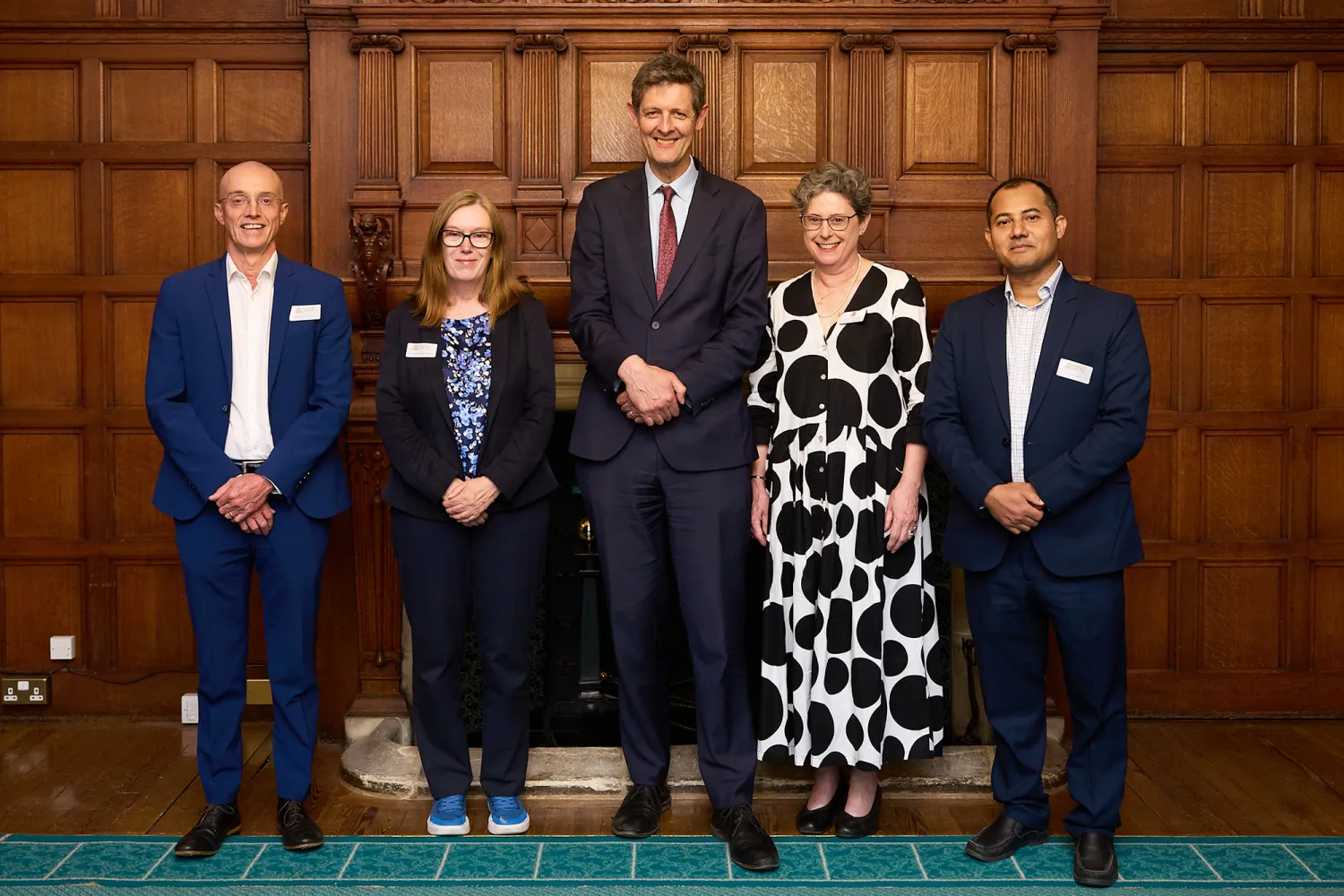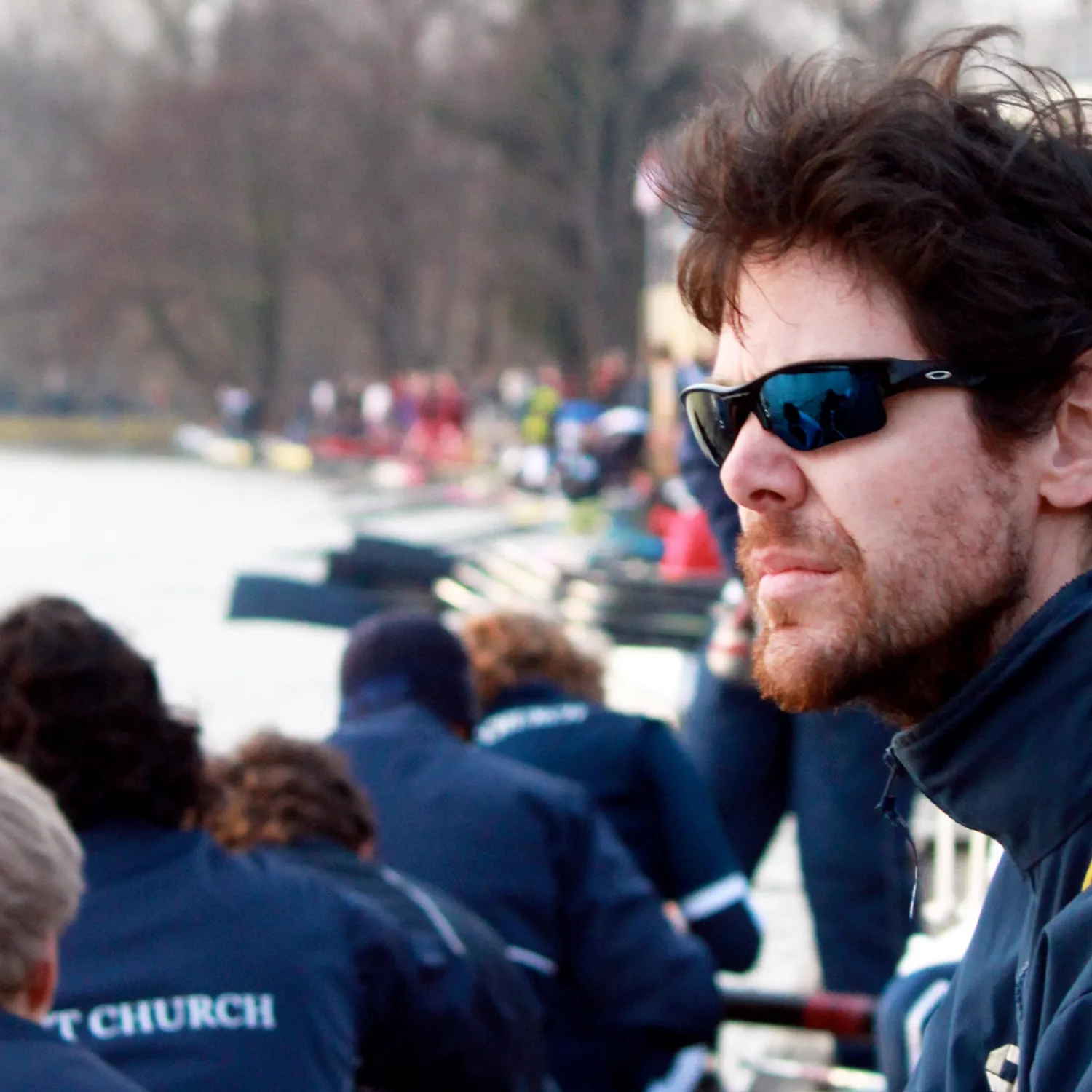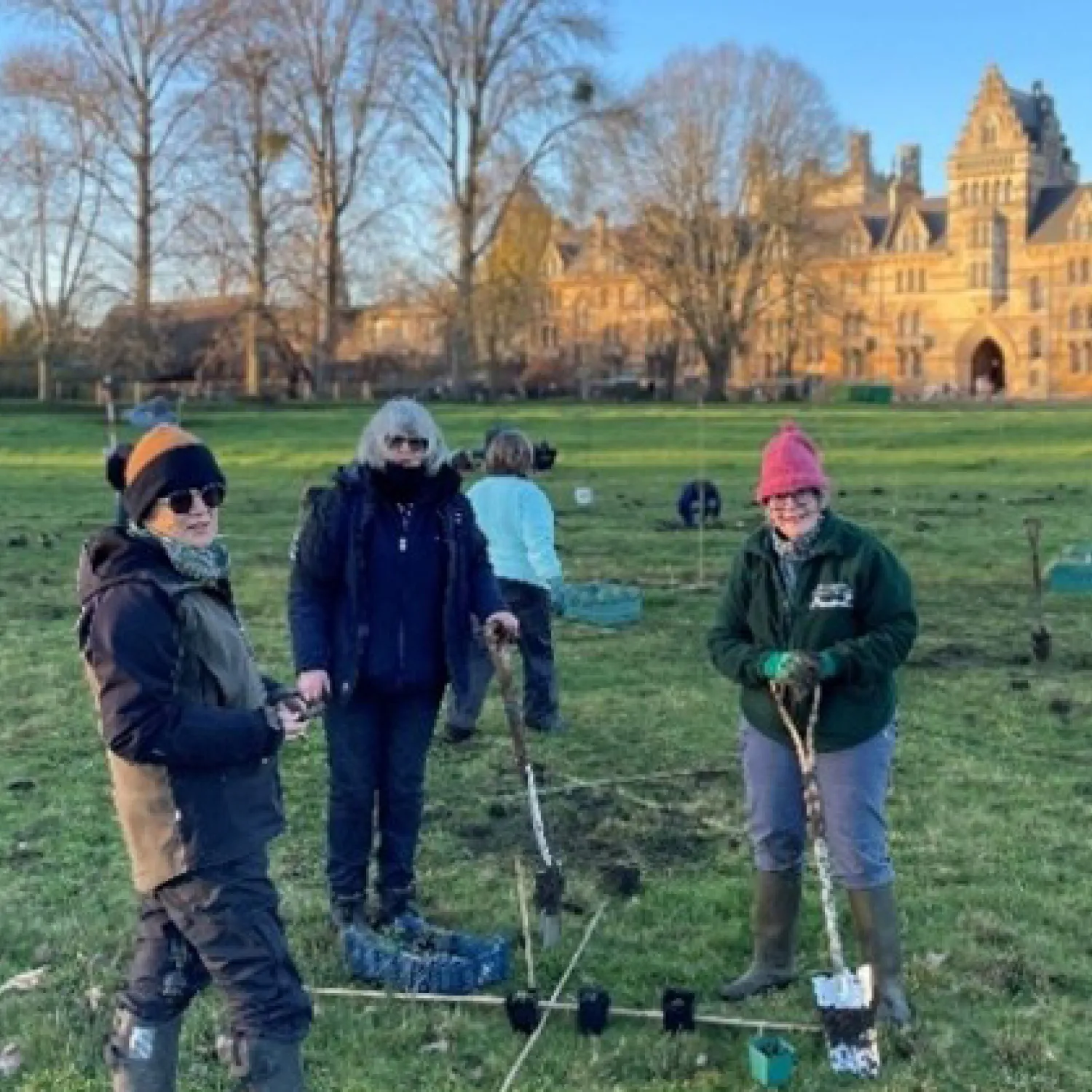Breadcrumb
Professor Dame Sarah Gilbert delivers second 500th Anniversary Lecture
On Wednesday 25 June, Professor Dame Sarah Gilbert, Senior Associate Research Fellow at Christ Church and Professor of Vaccinology at the University of Oxford’s Pandemic Sciences Institute, was the first of three expert speakers convened at Oxford’s Town Hall for the public event ‘Preparation and pandemics: confronting new threats’. The second in a series of lectures taking place across the globe to mark the 500th Anniversary of the founding of Christ Church, Professor Gilbert was joined by the Director of Oxford’s Pandemic Sciences Institute Professor Sir Peter Horby and DPhil candidate in Clinical Medicine Md Zakiul Hassan for a wide-ranging discussion of the power of university–industry collaborations in the battle to beat Nipah virus, the wider global threat of infectious diseases, and the need for pandemic preparedness. The event was chaired by Christ Church alumnus and BBC News Health Editor Hugh Pym (PPE, 1978).
In 2020 Professor Dame Sarah Gilbert DBE FRS initiated and led the development of the Oxford–AstraZeneca vaccine against COVID-19. Adopted by more than 180 countries, the vaccine is thought to have saved in excess of 6.3 million lives in its first year of use, and in 2021 Professor Gilbert was made a Dame Commander of the British Empire for her groundbreaking and lifesaving work. In her opening presentation last week, she reflected on her experience: ‘In 2020, it was a novel coronavirus: we didn’t have vaccines, we didn’t have treatments, and we didn’t have ways of testing for that virus.’ The scientific community was under great pressure as therapies, testing and vaccines had to be developed in real time – ‘as the outbreak, which became an epidemic, pandemic, spread across the world.’
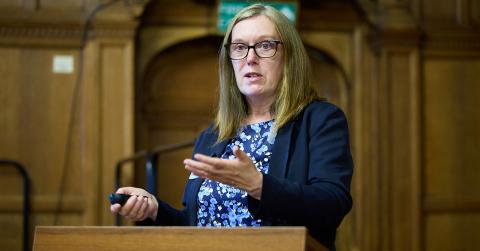
A key theme of Professor Gilbert’s presentation was the need to learn from our experience of COVID-19. While there was very little time between the first outbreaks of the new coronavirus in 2020 and the pandemic, there are many viruses out there that we know of already, and which already have caused outbreaks. This means that we can prepare – can develop vaccines, treatments and tests. If we do not act now, the risks are grave: ‘one thing we do know is that viruses change over time, and the way a virus behaves at the start of an outbreak may be different as time goes on.’ If left uncontrolled, viruses can evolve to become more transmissible, leading to epidemics and even pandemics. ‘Sadly,’ Professor Gilbert said, in the case of most known diseases, ‘we are not fully prepared to deal with those outbreaks.’
To illustrate the risks of complacency, Professor Gilbert and Md Zakiul Hassan – a medical doctor, University of Oxford Clarendon scholar and DPhil candidate in Clinical Medicine – discussed ongoing work to counter Nipah virus. The first known Nipah outbreak occurred in Malaysia in 1998. The virus is carried by bats, and in Malaysia pigs were becoming infected after consuming contaminated fruit dropped by bats into their pens. Pig farmers in Malaysia and abattoir workers in Singapore (to which infected pigs were shipped) were then becoming infected as well. Most outbreaks, however, have emerged in Bangladesh where there is a practice of drinking date palm sap. To collect the sap, a palm is tapped and an open-topped pot is placed beside the tree overnight. Fruit bats have contaminated this sap, resulting in Nipah virus infection in those who drink it.
The sooner we act, the fewer doses of vaccine we need, the fewer treatments we need, and there’s no need to vaccinate the whole world.
The sooner we act, the fewer doses of vaccine we need, the fewer treatments we need, and there’s no need to vaccinate the whole world.
Nipah was first isolated and recognised as a new virus in 1999, and in the more than 25 years since there have been just 733 cases. So why ought we to be concerned with this virus among many others? For one thing, the mortality rate is very high: among those 733 known cases there have been 428 fatalities, and there are at present no specific therapies for treating the infection. Second, with no tests, the virus is difficult to identify: the initial symptoms are flu-like, and once later neurological symptoms emerge as the central nervous system becomes infected, it is most likely too late to save the infected person. Most importantly, though, the virus can be transmitted between humans. While at present human–human transmission is not efficient, COVID teaches us that this can change. ‘What we know from viral evolution that we saw in the pandemic’, Professor Gilbert warned, ‘is if you give the virus the opportunity to keep spreading from one person to another, that virus will evolve and it will become more efficient at transmission.’
While warning of the threat that Nipah and other such viruses pose, Professor Gilbert and Hassan also issued a message of hope and a call to action. In the case of COVID-19, we had not prepared the tests, treatments and vaccines ahead of time; but this is something we can do in response to Nipah. We must accelerate research into controlling these and other known diseases. ‘The sooner we act,’ Professor Gilbert reminded us, ‘the fewer treatments we need, and there’s no need to vaccinate the whole world.’
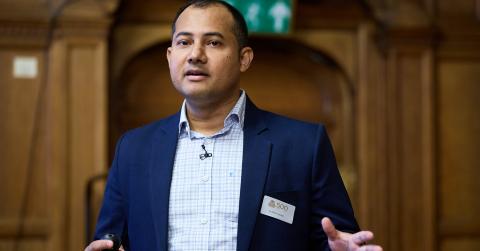
As well as underscoring the need for urgent action, Hassan detailed his on-the-ground experience as a Bangladeshi medical doctor, and his subsequent efforts to bear down on the transmission of the disease through hygiene measures and public information. Broadening the discussion, a third presentation from Sir Peter Horby considered the global picture in terms of pandemic preparedness. The Oxford audience heard of the inevitability of pandemics, and of their increasing frequency in an ever more connected world. Pandemics ‘are going to happen, and when they happen we’ll have very little warning,’ Professor Horby said. ‘We have to invest now to be ready for what’s coming next.’
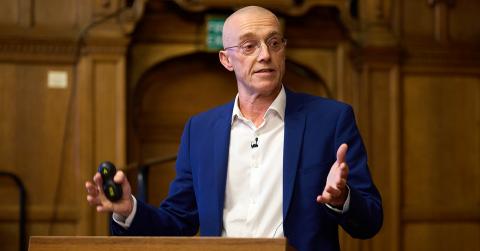
A final topic raised by Professor Horby was the rise of misinformation and anti-vaccine sentiment. He warned that progress is under threat from ‘the contagion of the anti-science brigade’ and decline in research funding worldwide, and he flagged in particular the worrying recent developments in the United States. The matter was discussed further in a panel discussion and in a Q&A with an engaged Oxford audience. The full event can now be viewed below.
The next instalment of the 500th Anniversary Lecture series takes place in Manchester on 11 September. Attendees will have the privilege of hearing from former Archbishop of Canterbury The Right Revd Rowan Williams and poet Michael Symmons Roberts FRSL. Tickets will become available in due course via our events page.
On 25 September, in New York (USA), the speaker will be Richard Stengel, former Under Secretary of State for Public Diplomacy and Public Affairs in the Obama administration and former Managing Editor of TIME magazine.
Other Christ Church news
